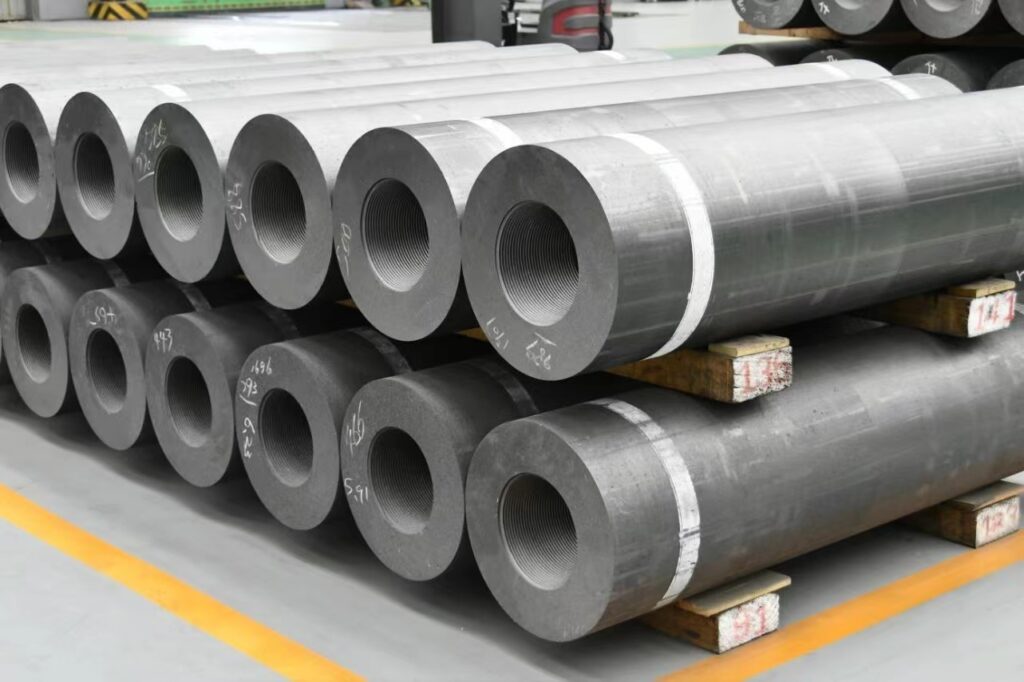금속 소재인 구리, 백금, 은, 탄소 전극, 흑연 등 다양한 전극 소재를 선택할 수 있습니다. 이러한 전극 재료는 전도성, 고온 저항성 및 화학적 안정성과 같은 고유한 물리적 및 화학적 특성으로 인해 야금, 화학 산업, 전기 화학 및 기타 산업 분야에서 널리 사용됩니다. 그중에서도 전극으로 사용되는 흑연의 비용은 전극 가 가장 낮기 때문에 생산 및 사용 시 선택률이 가장 높습니다.
목차
토글흑연이 좋은 전극인 이유는 무엇인가요?
흑연이 전극으로 사용되는 이유는 우수한 전도성과 높은 내열성 때문입니다.
그 이유 흑연 가 전기에 좋은 전극 전도체가 되는 것은 분자 구조와 전자 배열의 특수한 특성 때문입니다.
첫째, 흑연의 분자 구조는 수많은 벌집 모양의 탄소 원자 층으로 구성되어 있습니다. 각 탄소 원자는 평면에서 인접한 탄소 원자 세 개를 연결하여 평면 육각형 고리 구조를 형성합니다. 이 구조를 π 결합 구조라고 하며 흑연 전도성의 기초가 됩니다.
둘째, 흑연의 전자 배열도 전도성에 기여합니다. 흑연에서 각 탄소 원자는 3개의 π 결합을 통해서만 이웃 탄소 원자와 연결되고 나머지 전자는 평면에서 자유롭게 움직입니다. 이렇게 자유롭게 움직이는 전자를 π 전자 구름이라고 하며, 흑연 층 전체에 자유롭게 흐를 수 있습니다. 자유롭게 흐르며 전류를 전달하는 역할을 합니다.
흑연은 전극이 전류를 전도하도록 만드는 데 사용됩니다.
외부에서 전압이 가해지면 흑연 층에서 전자 구름이 움직이기 시작합니다. 전자의 자유로운 이동성으로 인해 전자는 다음과 같은 구조적 틈새와 결함 지점을 통해 빠르게 전도될 수 있습니다. 흑연. 따라서 흑연은 전극을 만드는 데 사용되는 저항이 매우 낮고 전류를 효과적으로 전도할 수 있습니다.
또한 흑연은 열전도율도 우수합니다. 흑연 층 사이의 약한 상호작용으로 인해 진동하는 탄소 원자를 통해 열이 빠르게 전달될 수 있기 때문입니다. 이것이 바로 흑연이 열 전도성 소재로 자주 사용되는 이유입니다.

